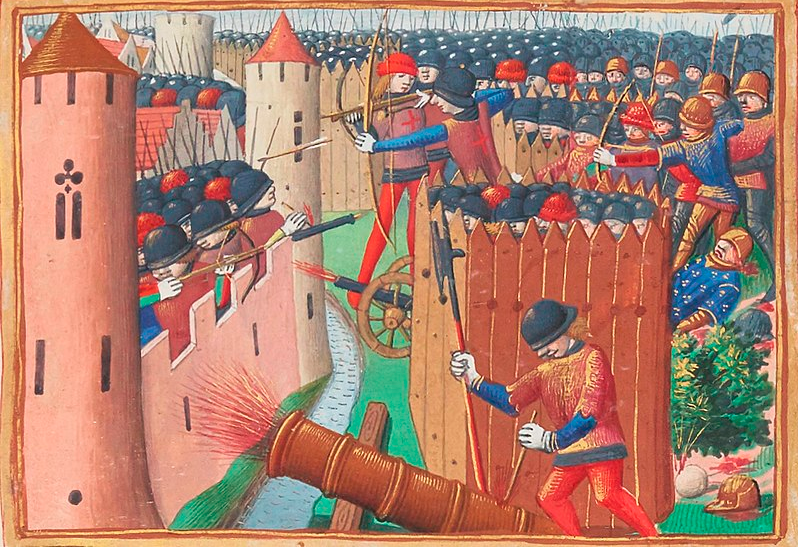Beginning in 1337 and concluding in 1453, the Hundred Years War saw the English and French monarchies battling for control of France. William the Conqueror, who had been duke of Normandy in France, gained control of England in 1066, and from that point forward, the English kings retained French titles and control of certain French lands. When Charles IV, King of France, died in 1328 without any immediate successor to the throne, Edward III of England emerged as the nearest heir. The French wanted a French King, however, and as a result, Philip VI ascended to the throne when chosen by an assembly organized to settle the issue. Edward accepted this decision until Philip tried to take control of England’s remaining claims in France in 1337, instigating the war. Historians now mark the war as having three separate phases. John of Castel Neuf, the speaker in “Concerning Geffray Teste Noire,” would have been active in the the second phase of the Hundred Years War now called the Caroline War, which ran from 1369-1389. The Caroline War broke out after nearly a decade of peace between England and France. In 1360, the treaties of Calais bestowed Edward III with complete control over the lands that England originally possessed prior to the beginning of the war. In 1369, however, Charles V, grandson of Philip VI, chose to break the treaties within five years of his ascent to the throne.
The war continued to start and stop for nearly another century. England made significant progress in claiming control of French regions, and as of 1422, even Paris fell under English rule. Much of this success could be attributed to the alliance between the English monarchy and the Burgundians, who were at war with the Armagnacs. In 1429, however, Joan of Arc led a troop which prevented the English from succeeding with the siege of Orléans. Shortly after Joan of Arc’s initial triumph and eventual execution by the English, the leader of the Burgundians, Philip the Good, concluded that the English could not effectively govern the French. He abandoned the alliance, aided the French king, and by 1453, England only controlled Calais and the Hundred Years War concluded.


